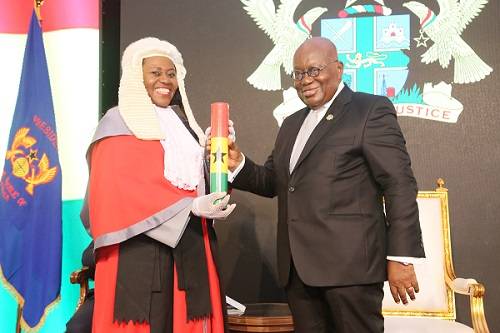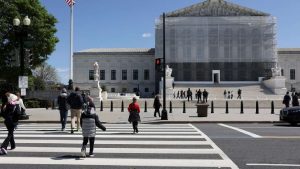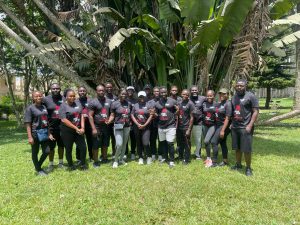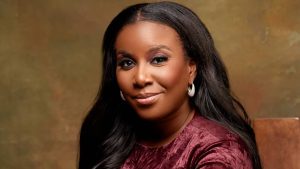President Nana Addo Dankwa Akufo-Addo has sworn in Justice Gertrude Araba Esaaba Sackey Torkornoo as the 15th Chief Justice of the Supreme Court since the inception of the Fourth Republic.
Laying out his expectations of the Judiciary, President Akufo-Addo declared that “it is crucial that we have judges who are morally upright with intellectual integrity and with the thorough understanding of the law.”
After reading a long list of her rich profile at the well-attended investiture at the Jubilee House in Accra yesterday, President Akufo-Addo described Justice Torkornoo as having “the full grasp of the intricacies of judicial administration” and therefore “will be an effective leader of the Judiciary, zealously defending its independence, constantly upholding its dignity and makes a worthy successor to her predecessor”.
The President added that the choice of Justice Torkornoo as the Chief Justice was not a particularly difficult one to make in view of her level of qualification, years at the bench and bar, and personal attributes.
Investiture
After the introduction of the nominee by the Director of the State Protocol, Yaw Kumah, the President administered the Oath of Allegiance, Judicial Oath and the Oath of Secrecy in succession to Justice Torkornoo who is the third female ascending the position after Georgina Theodora Wood in 2007 and Sophia Abena Boafoa Akuffo in 2017.
Coincidentally, the female trio attended the same secondary school, Wesley Girls High School in Cape Coast, and the old students were in attendance.
Smartly sporting the ceremonial regalia of a Supreme Court Justice, made up of a red gown, white collar and a grey wig, with white lacy gloves, Justice Torkornoo received the Instrument of Appointment which was draped in the national red, gold and green colours from the President, after which they both signed the Oath Book to seal the investiture.
Three Presidents
All three living Presidents of the Fourth Republic have had a hand in her judicial journey. She was appointed to the High Court by former President John Agyekum Kufuor, promoted to the Appeals Court by former President John Dramani Mahama, while President Akufo-Addo graduated her to the Supreme Court.
The investiture attracted the creme de la creme of the Ghanaian society, including Vice-President Mahamudu Bawumia, former President John Agyekum Kufuor, the Chairman and members of the Council State, Ministers of State, the leadership of Parliament, retired and sitting justices of the Supreme Court, judges, and the President and members of the Ghana Bar Association.
Others include the spouse, children and mother of the Chief Justice; heads of the security agencies, classmates, friends, Christian and Muslim clergy, and chiefs and elders from across the country.
Two Supreme Court Justices from the Supreme Court of Nigeria also graced the occasion.
Expectation
President Akufo-Addo said he was expectant that the tenure of Justice Torkornoo would also be marked by order, fairness, diligence, deep-seated respect for the rule of law and continuation of the modernisation of judicial functions and the expansion of infrastructure.
“The Judiciary has the heavy burden of being the bulwarks of the defence of the liberties and rights of our people, a burden that is best executed where it enjoys the people’s unalloyed respect,” he told the Chief Justice who has close to 20 years’ experience at the bench.
The President said the Council of State in its advice to him about the nominee noted that they had known the nominee in both her private and public life and could “vouch for her discipline, integrity, efficiency, and above all, her God-fearing nature”.
The President described those attributes as essential for the position of a Chief Justice.
President Akufo-Addo stressed that the Judiciary commanding the respect of the population by the quality of justice delivery and by the comportment and conduct of its judges was important for the development of the country.
Judges
President Akufo-Addo noted that it was unacceptable for judges to pronounce judgments based on decisions of lower courts and cite them as law and even less acceptable when judges issued orders without providing any justification.
He said judges must be knowledgeable, familiar with case law and committed to making well-informed decisions, adding that was the only way the rule of precedents could operate “to promote the even-handed, predictable and consistent development of legal principles, foster reliance on judicial decisions and contribute to the actual and perceived integrity of the judicial process”.
President Akufo-Addo assured the Chief Justice that just as he did with her predecessors, he would be a dependable and trustworthy partner of the Judiciary so that the Executive and the Judiciary could work together in a spirit of mutual respect to consolidate the tenets of good governance for the benefit of Ghanaians.
Chief Justice Torkornoo called for the national digitalisation agenda to be expedited to allow for easier networking of all stakeholders.
She also called for an expansion in the budget of the Judiciary to allow it to expand its infrastructure in the automation and digitalisation space.
That, the Chief Justice explained, was because the efficiency of court processes and administration was assured with more deliberate use of technology.
“There is a need to increase our budget to make learning, library and operational resources available to all judges and staff in order to enhance the speed with which both judicial and administrative decisions are made and communicated to stakeholders,” Justice Torkornoo asserted.
The Chief Justice said the Judiciary must also make itself accountable by increasing transparency in the process and output of their judgments and decisions through real time publications of decisions, especially when it came to decisions on land ownership and other areas of law that affected the economy and social stability of the country.
Brief
Justice Torkornoo joined the Judicial Service in 2004 as one of the first Justices of the Commercial Division of the High Court.
She has been active in the core reform agenda and activities of the Judiciary and the Judicial Service of Ghana since 2005.
Education
She holds an LLM, Intellectual Property Law from the Golden Gate University, San Francisco, USA between 2010 and 2011.
In 2001, she obtained a Postgraduate Diploma in International Law and Organisations for Development at the Institute of Social Studies (now part of Erasmus University in The Hague, Netherlands).
Justice Mrs Torkornoo had her Professional Certificate in Law from the Ghana School of Law in 1986, having obtained a Bachelor of Arts in Law and Sociology at the University of Ghana in 1984.
She went to Achimota School, Accra, and Wesley Girls’ High School, Cape Coast.









